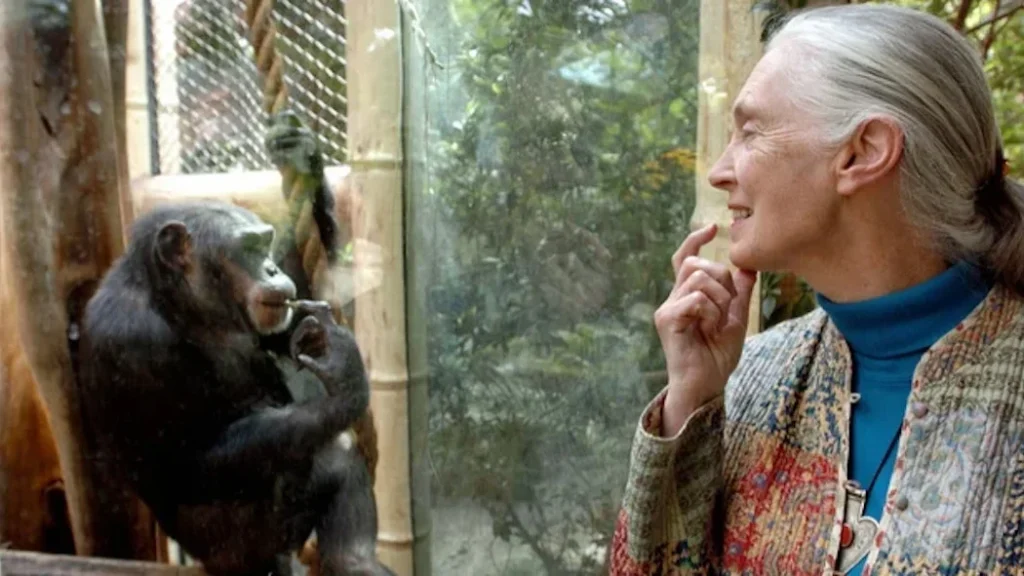Jane Goodall, the trailblazing primatologist and dedicated conservationist, has died at age 91.
The Jane Goodall Institute announced the news on October 2, 2025, via Instagram, honoring her lifelong contributions to science and environmental causes.
Revolutionary Chimpanzee Studies
Goodall’s fieldwork in Tanzania during the 1960s revolutionized how we view chimpanzees.
She observed their tool use, emotional depth, and social bonds, challenging the idea that these traits were uniquely human.
Her immersive approach naming the chimps and interacting closely revealed their personalities and complex behaviors, influencing global wildlife conservation.
Early Influences
Born in London in 1934, Goodall’s fascination with animals started young. By age 10, she dreamed of living among them in Africa.
A 1957 trip to Kenya led to her meeting anthropologist Louis Leakey, who hired her as an assistant and later sent her to study chimps in Tanzania’s Gombe Stream area.
Challenging Norms
Without a formal degree, Goodall earned a PhD in ethology from Cambridge University in 1966. Her methods, like feeding and naming the animals, drew criticism but yielded groundbreaking insights.
She documented mother-infant bonds, sibling interactions, and even chimp “adoptions,” showing their emotional lives.
Advocacy and Honors
In her later decades, Goodall traveled nearly 300 days a year to promote conservation, education, and humanitarian efforts.
From her Bournemouth base, she spoke to packed audiences, blending serious messages with chimp whoops or lighthearted Tarzan jokes.
She became a UN Messenger of Peace and received awards like the Presidential Medal of Freedom in 2021 and the Templeton Prize.
Publications and Influence
Goodall authored bestsellers like “In the Shadow of Man” and “Reason for Hope,” sharing her discoveries.
Her work shifted public views on animals, emphasizing empathy and protection. She highlighted the climate crisis’s toll, advocating for sustainable practices without despair.
Why Her Work Endures
Goodall’s legacy lies in bridging humans and animals, inspiring global action. Her observations sparked ethical debates on research and conservation, influencing policies worldwide.
What’s Next
The Jane Goodall Institute will continue her mission, focusing on chimp protection and youth education. Her influence on primatology and environmentalism remains timeless.






